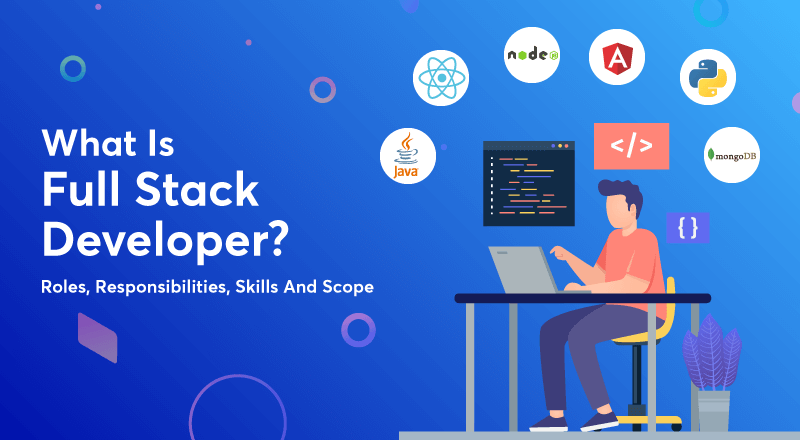
Jul 17 , 2023
In today's rapidly evolving digital landscape, Full Stack Development has emerged as a prominent career path for aspiring programmers. With its wide range of skills and expertise, full stack developers are in high demand across industries. According to sources such as LinkedIn and job portals, there are over 40,000 jobs available in full stack development. The rise of mobile and web applications, as well as the increased focus on user experience, has further contributed to the demand for full stack developers. However, choosing the right path in this field can be challenging.
In this blog post, we will explore the evolving nature of Full Stack Development, provide insights on selecting the right path, and introduce EHAM, a software services start-up offering premium tech projects for individuals who have completed their 5.5-month software engineering Bootcamp powered by Holberton.
Full Stack Development encompasses both frontend and backend development of websites and applications. Full stack developers possess a diverse skill set, including proficiency in front-end technologies such as HTML/CSS, JavaScript, CSS frameworks like Bootstrap, and popular JavaScript frameworks like React and Angular for building dynamic user interfaces. They also need backend development skills with programming languages such as Python, Node.js, Java, or PHP, as well as server-side frameworks and RESTful APIs. Additionally, full stack developers should be familiar with connecting to databases using APIs, SQL, and executing CRUD operations. Other essential skills include version control and deployment (Git, AWS, Azure), familiarity with web servers, DevOps, and QA/debugging tools.
Becoming a full stack developer requires a combination of theoretical knowledge and practical application. Here are a few options to consider:
1. Online Full Stack Development Courses: Many online platforms offer comprehensive full stack development courses. Look for courses that cover front-end, backend, databases, and relevant frameworks.
2. Bootcamps: Full stack development bootcamps are intensive, immersive programs that provide hands-on training in a short period. They often cover a wide range of technologies and frameworks. Popular bootcamp providers include General Assembly and Holberton USA.
3. University Degrees and Programs: Consider pursuing a degree or diploma program in computer science, software engineering, or web development. These programs provide a comprehensive understanding of programming concepts, algorithms, databases, and software development methodologies.
4. Self-Study with Online Resources: Utilize the vast amount of free and paid online resources available. Websites like Mozilla Developer Network (MDN), W3Schools, FreeCodeCamp, and YouTube tutorials offer valuable lessons and tutorials for learning various technologies and frameworks.
5. Open-Source Contributions: Engage in open-source projects to enhance your skills and collaborate with experienced developers. Platforms like GitHub provide opportunities to contribute to real-world projects and gain practical experience.
6. Practice by Building Projects: Building projects is an essential part of becoming a full stack developer. Start by creating simple projects and gradually move towards more complex ones. This hands-on experience helps you apply what you've learned, discover new concepts, and develop problem-solving skills.
Full Stack Development offers a promising career path for individuals who embrace challenges and adapt to evolving technologies. Understanding the fundamentals, keeping up with industry trends, and expanding your skill set are key to navigating the future in this field.
EHAM's Offer: EHAM offers cohort-based learning with a limited number of seats to build and deploy top-tier tech talent in leading product companies. Their hands-on learning curriculum, designed by Holberton USA, is specially curated to pave the way for a fulfilling career in product engineering.